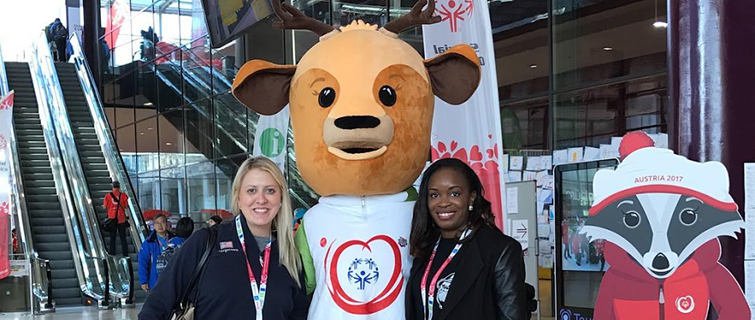
When the course was created a decade ago, there was nothing quite like it at a U.S. university. And today, Cause Consulting, a course within Georgetown University’s School of Continuing Studies, remains unique in its ability to immerse students in the world of nonprofits and socially committed businesses through a focus on marketing and communication.
This year marks the 10th anniversary of the course’s debut, and since that time the class has trained 221 students as cause consultants, served 78 organizations, and provided more than $3 million in pro bono consulting services. When you include the value of all social impact-related services provided by communications students over the decade through their final Capstone projects, that number rises to nearly $15 million.
“I’m so proud of the ripple effect of impact Cause Consulting has had on students, our community and the University,” said Denise Keyes, who created the course and serves as executive director of the University’s Center for Social Impact Communication. “Each year, cause consultants continue to surprise and delight us by combining their marketing and communication skills with a deep commitment to service.”
“They’re not just learning about cause consulting from a textbook,” said John Trybus, who teaches the course and serves as the Center’s managing director. “They’re learning in real time, while becoming trusted advisors to their nonprofit clients. We’re truly living and breathing Georgetown values, especially ‘people for others.’ We’re living them through this class and the student’s service to the community.”
Hands-on Work
Housed in the Public Relations & Corporate Communications program and open to students in Integrated Marketing Communications, the class offers a cohort of students the chance to work collaboratively with client organizations in small consulting teams. By the end of the semester, each team provides its client with a suite of three sustainable deliverables and recommendations for using them effectively. In addition, students who complete the course are recognized with the special designation of “Cause Consultant” by the Center.
Tima Hawes and her teammates, Sandi Moynihan and Megan Anderson, were able to spend the Fall 2016 Semester working for Special Olympics, which was preparing to host its 2017 Winter Games in Austria.
“All of our first client choices was Special Olympics,” Hawes said. “So it worked out for all of us.”
It also worked out, in a big way, for Special Olympics, which was so impressed with the team’s contributions that it invited the students to work on messaging at the Special Olympics Global Youth Leadership Summit, March 16–21, 2017, in Graz, Austria. Two of the three students were able to make the trip.
“It was a good feeling just to know we were helping—that what we were doing was going to benefit somebody,” Hawes said.
“We enjoyed working with the students who brought fresh perspectives to our work,” said Kirsten Suto Seckler, Special Olympics’ chief marketing officer and a Cause Consulting client. “The engagement with them carried forth to the event they were working toward, and we are grateful to them and Georgetown that they could see their work in action.”
In 2017, Trybus began grouping all the semester’s pro bono work around a common theme. This enables students to explore a segment of the nonprofit sector in greater depth. The theme for the spring semester was food and hunger, and included pro bono work for groups such as D.C. Central Kitchen, the nation’s first community kitchen, and FRESHFARM, a nonprofit that supports sustainable agriculture, food access, and equity. For summer 2017, the focus was on working with organizations that serve those with intellectual and physical challenges.
A New Vision for Nonprofits, Businesses
Since that first Cause Consulting class in 2007, the notion that employees would seek meaning beyond simply making money—or, in the case of nonprofits, raising money—has gained greater currency. The “purpose revolution” is in full swing, taking organizations to new places, and there is no turning back.
But the mere fact that today’s organizations may be more visionary and purpose-driven doesn’t necessarily make them any easier to work for. In many ways, it’s just the opposite. At the Center, faculty and administrators use the term “the blur” to describe the rapid breakdown of boundaries in the public and private spheres, whether that be the merger of news and advertising, the new fluidity in job titles and responsibilities, or the busting of silos that once separated employees according to archaic notions of organizational structure.
In Cause Consulting, students don’t run from the blur—they embrace it. But in order to do this, Trybus said, they need to know themselves and develop the kind of emotional intelligence that can guide them through this changing landscape. That’s why the class uses tools like StrengthsFinder and the Meyers-Briggs assessment scale to help them discover just what kind of consultant leaders they are and where their skills would be most effective.
It’s an ongoing process that continues long after they’ve received their degrees.
“We still hear from a lot of the students after they’ve graduated,” Trybus said. “And they tell us they use the principles of Cause Consulting no matter where they are and how they’ve continued to tap into the Hoya family of cause consultants working to drive impact around the world.”
